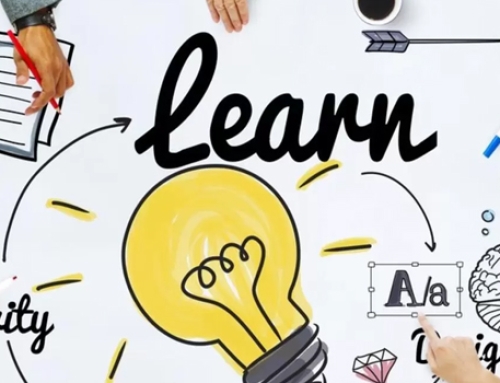We all love our technology, don’t we? To be able to update each other on our eating habits and what our cat is doing with the laser pointer is fascinating. Even with all the “tongue in cheek” aside, technology is a fantastic thing in this modern age of ours. To be able to find out anything, at a moments notice, not only put the Encyclopedia Britannica out of business but made all of us as all-knowing as humanly possible.
We have eradicated diseases that used to plague our society, made travel to far off places commonplace and near-instantaneous communication possible. Then comes all the gadgets that are designed to make life “easier” for us all.
Consider for a moment, with how unreliable technology can be, and with the real threat of it going away in the doomsday scenario of an EMP attack – well even when it is less drastic than that, if we can’t afford any longer to have the latest in phones or tablets or laptops… what would we do?
 Our communities would drag to a halt
Our communities would drag to a halt
Every car, truck, and semi are made nowadays with a computer that makes all the machinery work and checks it’s systems. Without that technology, food deliveries (any deliveries for that matter) would cease.
All would come to a standstill, except for your hunger and need for shelter. Those prepared and already practicing the following tips and tidbits have no need to fear in any circumstance of economic disparity, climate catastrophe or technological meltdown.
In these cramped conditions, it is no wonder that people have stopped learning how to garden (86% of teenagers today could not tell you how we grow simple vegetables and fruits). To those in urban areas, the thought of growing a garden seems like a novelty. But gardening (geared to produce a substantial amount of food) is actually a task which requires vast amounts of knowledge and practical know-how.
Here are just some of the things you need to know to grow food effectively:
– Soil Conditions
– Crop rotation patterns
– Pruning
– Composting
– Sun exposure planning
– Seed germination
– Planter building
– Pest Control measures
– Tools, care, and maintenance
When technology isn’t enough or is out of the picture entirely, you need to have a way to produce the food you and your family require. To boot, you won’t need to get all your food from the supermarket anymore! And learning those skills beforehand will solve a lot of problems for you later.
And it’s not all about feeding and keeping the animals from harm (which is an important part of it all), it’s also the personal care of those animals and the housing of those with the proper shelters and fencing.
You will need to get really good at diagnosing and treating animal diseases – how many vets will be around? – You will also get good at building sturdy and break-out-proof coops and pens for your animals that will keep them in and other animals out. Start learning about it all now before you have to learn by trial and costly error.
Developing the skill of staking out the animals that we need for eating, warmth and sometimes shelter is very important. Knowing the animals habits and tracks and how they work through the hunting grounds will increase your chances of being able to eat or not eat when the time comes for it.
Additionally, knowing how to set snares and traps for smaller game are most useful in a needing meat scenario. Unlike rifles, snares don’t require any ammo, they don’t make loud noises which will give away your location, and are more likely to get a catch since small animals are found in greater abundance.
Foraging, going out to the great yonder (fields, forests, and even deserts) and finding those items that can be edible AND nutritious for us is an important skill and knowledge to gain. And it doesn’t just stop at what we can put into out stomachs either. There are many plants, seeds, roots and fungi that can assist us medicinally as well.
Foraging has a loooong history, even before people planted crops, foraging was a reliable way to gain the sustenance that was needed. For us in our day it is a great way to supplement our diets and get a greater diversity in what we take into our bodies for nourishment. Start learning which plants, roots, seeds etc. to look for and which ones to avoid as well (nothing like a poison ivy salad, right?)
Getting recipes, and making them on a regular basis is a good practice to be in. Making bread, or casseroles, or long lasting food sources can help out in any time or economic situation.
Our great-grandparents used the best methods of preserving the food for year-round usage which took advantage of the food seasons. Learn food preservation skills like:
- Lacto-fermentation
- Pickling
- Smoking
- Dry salting
- Curing
- Drying
- Cellaring
These skills are what you need for that rainy day scenario. How much will you worry about food when money is tight if you have supplies like these to draw from each time you eat?
Gaining the education on just how to do it, and then putting that education to work with the animals you hunt or look to put on your dining room table will give you a better appreciation on all that is involved in that process.
When times are lean, the habits of using what you have become fine-tuned. So when you have a surplus, you must put some aside for those rainy days for long term food storage supplies.
Beyond knowing CPR, and how to treat shock, there was general knowledge of what could help stop bleeding or treat a cough (without cough syrup) or assist us in living better. Those many uses for the Vitamin E oil, or what cayenne pepper could do beyond making your dinner hot were known more generally by our ancestors.
Such knowledge we must regain again! As health care and access to it gets worse and worse, we need to be able to take care of those things that make a difference to our health. Take the steps necessary to be prepared for the inevitable accidents that happen and the general sickness that can come at a moment’s notice.
In a serious disaster situation, these skills of fixing properly those things around the home can go a long way to your survival – even basic carpentry skills to build and use a shelter. At a bare minimum, everyone should know the following four things. After you got these down, you can build up your skills of fixing your home’s maintenance issues.
- How to shut off the water main from the street – Make sure you know where it is located and how to shut it off if needed. Never a good thing to have your home flooded at any time
- How to shut off the gas main – at the point where it comes off the street, nothing worse to have that hanging around putting everyone in danger when it is broken by a natural catastrophe.
- How to shut off the electricity – when it comes in from the wires and something has fallen or been left bare and exposed you don’t want to have the shock that could change your life or end it altogether.
- Securing your home – whether it be boarding up windows in case of natural disasters, or protecting your family in cases of societal unrest, know how to quickly get those life and property saving items in place.
First of all household items were built to last. Vacuum cleaners, dishwashers, stoves, and the like lasted for years and years even handed down to the next generation. Kitchen tools and utensils were the same, as well as many of the things found in the tool shed. Not so much anymore.
But the idea here is to be ready to use what you have until it is unusable for that purpose. Then, repurpose it for another item or task or spot around your home. Being able to reuse what can still be used or thrown out by others is a great skill to have when the crap hits the fan in this world of ours.
It wasn’t long ago that neighbors knew each other and knew they could rely on them in times of need. Whether it is through your own communities in church, in a common interest or just the geographical neighborhood in which you live, being friendly with your neighbors might not seem like a skill to cultivate. But it could be the one that ultimately saves your life. Humans are creatures that are social, and there is certainly something to be said that there is strength in numbers. Being known as someone that can be a part of the community can help when the times get hard for all around us.
Our collective grandparents didn’t always have access to the local haberdashery or dress shop and had to develop the skills to make, mend and make due with the fabric they could get a hold of. Usually, this duty in the past was placed upon the moms to know, it is a skill all of us can gain to keep us well heeled in the clothes we have.
It was once seen as a routine component of a household economy, usually (but not always) cheaper than buying items ready-made.
Learning how those do it in the world without electricity may be a worthwhile afternoon for you.
Gaining the knowledge and the steps that we can make soap is well worth our time and future hygiene.
And no, the hand-eye coordination you can with playing video games doesn’t apply here.
Being able to have this skill to being accurate in what we aim at is something that we need to do more of and become expert at.
In the past, wood stoves were the most common way of warming a house during the cold months. Along with bed warmers, and the like it was a way to keep one from “catching their death” or losing needed toes and fingers.
We need to plan for and practice methods that we can use to warm our homes when the central heating goes out for any length of time. That is to keep in mind as well those things that won’t readily burn the house down at the same time.
What did people do to fill up there time? First of all, there wasn’t a lot of extra time with the daily chores that needed to be done. But if they had any down time, they read…. yes read, books, scriptures, and poems that others around them had and wrote upon. They also wrote, yes, I said wrote. They placed their thoughts down on paper and in journals to be kept and reflected upon later. They thought out what they wanted to say and put it down for others to see.
They also told stories. A great story teller was as good as any TV if they knew how to tell those stories that would keep them in their seats and imaginations connected.
They also practiced their skills to become better at things that they needed and could be considered luxury items. Woodworking, blacksmithing, anything that you could create as a gift to others you care about and care for.
They were occupied in a good endeavor constantly, and idleness was for the drunk and the wanton drifters. They could bring into reality what was in their imaginations and often did.
With goods so readily accessible, for the last couple of generations, we haven’t had to learn to “make do” with what we have. Instead, we just buy whatever we deem “missing” in our lives.
Easy access has killed our creativity and problem-solving skills. We don’t know what it feels like to “go without” or do with what is available and at hand right now. We need to be satisfied that we have what we need for living the good life and that no attaining of material possessions of how cool or easy to use it all is, is worth your peace of mind.
Living within your means is a great skill to cultivate now.
Practice does not make perfect, it makes it permanent, in your mind, in your muscle memory in your habits and ways of teaching others how to do it too.
Resolve here and now to not be a succubus on the teat of society if the ease of the modern age goes away. Put into place those skills that will get you from fear to confidence when you have to apply them in times of hardship or trial. Develop the arts and the sciences of all of these so that you can pass along the essential items of living to those who come after you that have no connection to the technologies that so easily could be wiped away.






